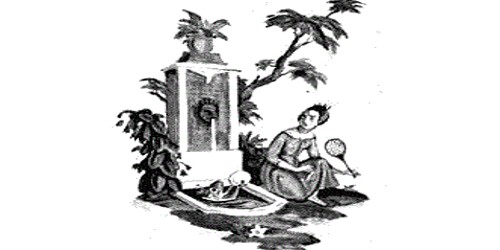The Ring of Fate (An English Fairy Tale)
Once upon a time, a baron who possessed magical powers had a son whom he dearly loved. When the boy was 4, the baron looked into the Book of Fate. His face paled when he saw his son was destined to marry a poor man’s daughter who had been born that very day in the village of York. “This must not be,” the baron said, for he had grand plans for his son.
He mounted his horse and rode at once to York, where he set about his search. At last, he came to a rundown cottage where a cobbler sat upon his stoop, wringing his hands.
“What troubles you?” the baron asked.
“Oh,” the man wailed. “I’ve had a child born today. I will never be able to feed her, for I have barely enough to feed my five others.”
“I will take your littlest one and give her a proper home,” the baron offered.
The poor man, pleased that his daughter might live in comfort, agreed to give her to the baron, though he wept as he waved farewell.
The baron rode off with the wee ones in his arms, but when he reached the river, he threw the child into the water and galloped away.
Fortunately, the baby girl’s dress ballooned around her, and she gently floated. That evening a fisherman found her and took her home with him. There she grew to be a lovely young woman.
One day as she was hanging laundry in the midday sun, the baron and his friends were out hunting and passed by the fisherman’s cottage. Seeing the strangers, the girl offered them drinks to quench their thirst.
“What a fine young woman,” one of the hunters said. “Baron, tell us, what does fate have in store for her?”
The baron smiled. “Tell me, child, what day were you born?”
“I don’t know,” the girl said sadly. “I was found 15 years ago floating in the river.”
Now the baron knew exactly who she was, and he determined to rid himself of this child once and for all. “I’ll make your fortune,” he said to her. “Allow me to give you a letter of introduction to my brother, a noble knight. My son is visiting him, and together they will make certain you are settled for life.”
The girl gratefully took the letter and set off on the journey to the knight’s castle. What she did not know was that the letter instructed the baron’s brother to put her to death.
That night she stopped at a wayside inn. As it happened, the same night a band of robbers broke into the inn. When they saw the girl had no money, they demanded her letter.
“Oh please,” she begged, “I have no money. This letter is my fortune, the baron’s gift to me.”
The captain of the robbers snatched the letter, and when he read it, he grew furious at the baron’s deceit. “So the baron has promised you a fortune, has he?” he asked. He composed a new letter in which he wrote: “Dear brother, take this child and marry her immediately to my son.”
The next day the girl reached the baron’s brother. He read the letter and ordered a wedding to be prepared at once. That very day the baron’s son and the poor young girl were married.
They lived happily together until the baron arrived to visit. When he saw the new bride, he shook with fury. “Come, child,” he said, composing himself, “let us take a walk together now that you are my daughter.”
They walked along the oceanside cliffs. When they were high above the sea, the baron grabbed her and was ready to throw her over. “Please, father, please!” she cried. “I mean you no harm. If you will spare me, I promise I will never see your son again.”
The baron pulled away, for he did not have the heart to kill his son’s wife. He looked down at his hand and said, “You see this ring,” and he took his golden ring from his finger and tossed it far out to sea. “Never show your face to me again until you can show me that ring,” and with that he let her go.
The poor girl wandered for days until she came to the home of a kind duke who offered her lodging and works in his kitchen. There she lived for many months.
Now one day she glanced out the window and saw the baron, his brother and the baron’s son, her husband, riding up the path toward the duke’s castle. Terrified the baron might see her, she hid behind a cauldron and began to clean the fish that were to be served for supper. Suddenly she saw something gleaming inside the fish, and when she reached in, she found to her amazement the baron’s golden ring.
Later, she cooked the fish and sent it to be served.
The guests, full and happy, asked to see the cook so that they might thank her.
The girl placed the ring upon her finger and walked proudly to the dining hall.
When the banqueters saw the beautiful young woman, they praised her, but the baron, his face red as flame, started up as if he meant to harm her.
“Wait,” she said, and she held out her hand to the baron.
When he saw his gleaming ring, he knew at last that the will to harm was weaker than fate. “Come,” he said gently. “Live with my son, your true husband.”
The next day the baron, his son, and the young woman traveled home, and there they lived happily together. Never again did the baron attempt to trick fate.
















